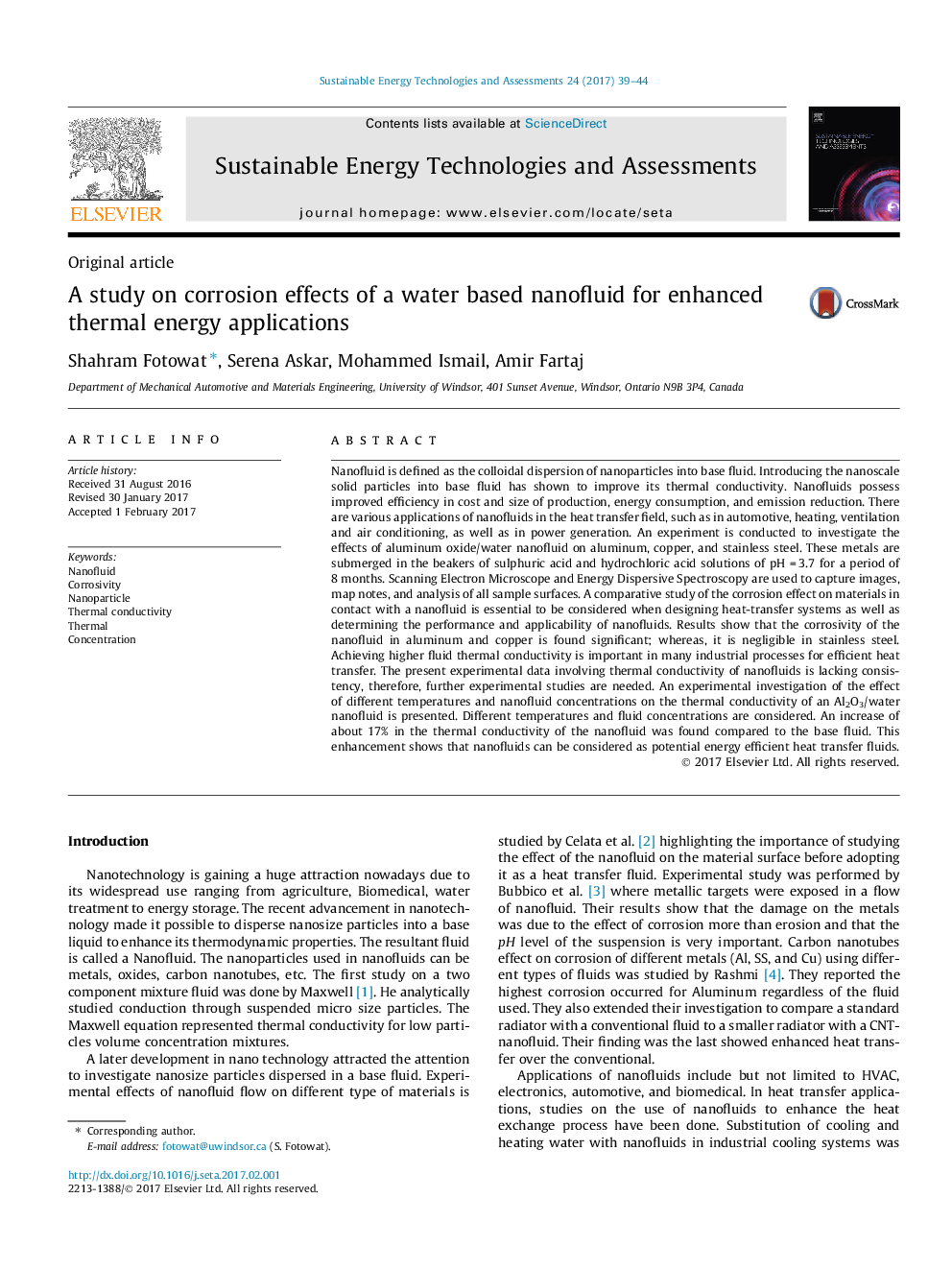| Article ID | Journal | Published Year | Pages | File Type |
|---|---|---|---|---|
| 8122845 | Sustainable Energy Technologies and Assessments | 2017 | 6 Pages |
Abstract
Nanofluid is defined as the colloidal dispersion of nanoparticles into base fluid. Introducing the nanoscale solid particles into base fluid has shown to improve its thermal conductivity. Nanofluids possess improved efficiency in cost and size of production, energy consumption, and emission reduction. There are various applications of nanofluids in the heat transfer field, such as in automotive, heating, ventilation and air conditioning, as well as in power generation. An experiment is conducted to investigate the effects of aluminum oxide/water nanofluid on aluminum, copper, and stainless steel. These metals are submerged in the beakers of sulphuric acid and hydrochloric acid solutions of pHÂ =Â 3.7 for a period of 8Â months. Scanning Electron Microscope and Energy Dispersive Spectroscopy are used to capture images, map notes, and analysis of all sample surfaces. A comparative study of the corrosion effect on materials in contact with a nanofluid is essential to be considered when designing heat-transfer systems as well as determining the performance and applicability of nanofluids. Results show that the corrosivity of the nanofluid in aluminum and copper is found significant; whereas, it is negligible in stainless steel. Achieving higher fluid thermal conductivity is important in many industrial processes for efficient heat transfer. The present experimental data involving thermal conductivity of nanofluids is lacking consistency, therefore, further experimental studies are needed. An experimental investigation of the effect of different temperatures and nanofluid concentrations on the thermal conductivity of an Al2O3/water nanofluid is presented. Different temperatures and fluid concentrations are considered. An increase of about 17% in the thermal conductivity of the nanofluid was found compared to the base fluid. This enhancement shows that nanofluids can be considered as potential energy efficient heat transfer fluids.
Related Topics
Physical Sciences and Engineering
Energy
Energy Engineering and Power Technology
Authors
Shahram Fotowat, Serena Askar, Mohammed Ismail, Amir Fartaj,
